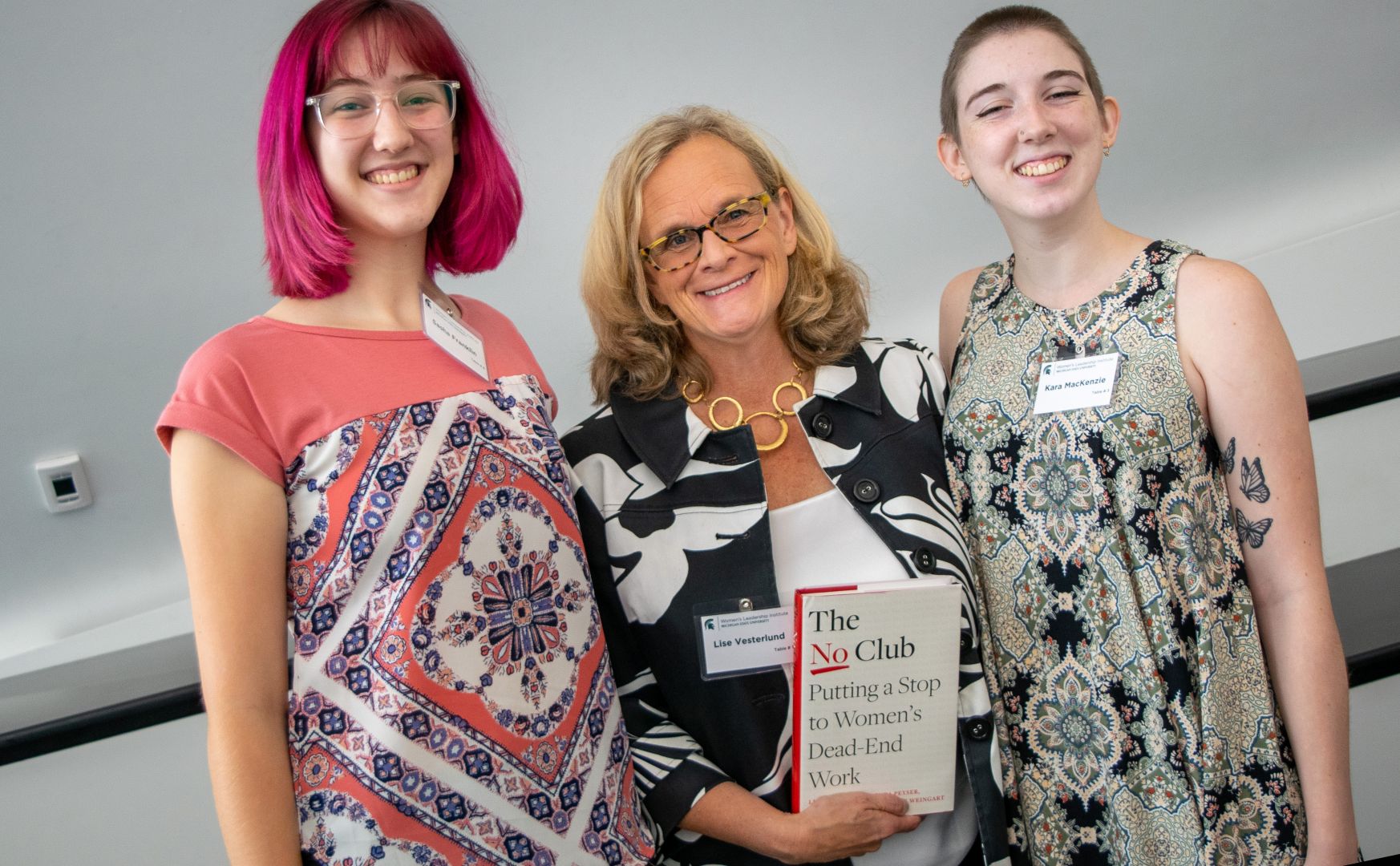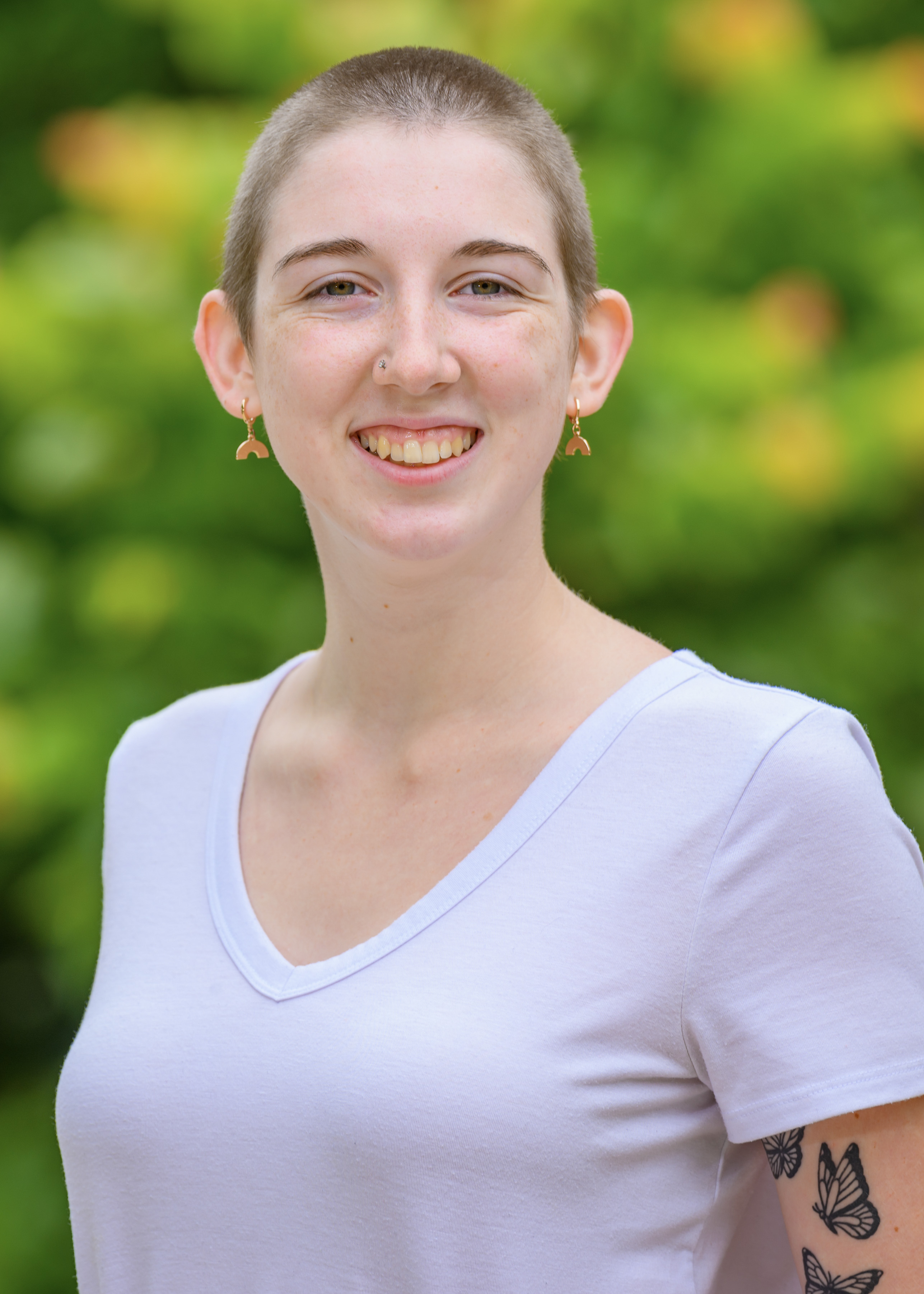
Women are disproportionately given dead-end tasks at work, and it needs to stop.
That is the message that Lise Vesterlund, co-author of The No Club: Putting a Stop to Women’s Dead-End Work, hopes to spread. Every workplace has tasks that must be completed but are unrewarded with raises or promotions, and women (especially women of color) are usually expected to do this work. Unfortunately, this burden contributes to women’s burnout and work overload and hinders their career development. Vesterlund argues that women must be empowered to say “No” to the non-promotable tasks that hold them back, instead focusing on those that will advance their careers.
I had the opportunity to read Vesterlund’s book, which was co-written by Linda Babcock, Brenda Peyser, and Laurie Weingart, and to see her speak twice in September. While reading, I was disheartened to learn that women are disproportionately asked and expected to take on the non-promotable tasks, or NPTs, that must be done but nobody wants to do. These tasks, such as party planning, taking meeting notes, and helping others with their work, leave women “overcommitted and underutilized” and cause companies to lose out on revenue, productivity, and talent.
The No Club is insightful, inspiring, and extremely relevant to working women in careers from academia to law to airport security, but what about students? As a senior at Michigan State University, I often found myself wondering how the book applied to me. I have felt the effects of work overload for years, but how could I reduce my workload when I didn’t have a choice about the classwork that was assigned to me?
Although The No Club especially focuses on experienced women who want to advance their careers, it does provide some valuable tips for university-aged women. For instance, the authors describe how “the collective expectation that women were going to step up” leads to them volunteering at much higher rates than men for NPTs. In college classes, this often appears as women volunteering to take notes, turn in the group project, or help others with their work.
First, we can stop volunteering ourselves for these tasks that distract us from our own learning. It is tempting to volunteer just to break the awkward silence, or even because you think you would be good at the job, but resisting the urge means you will have more time for the things that really matter to you. Instead, those who are expected to volunteer for non-promotable tasks in class can wait for someone with less commitments to take them on, or even suggest that a less burdened peer would be just as good at completing them.
During her visit to MSU on September 20th, Vesterlund stated that The No Club is especially relevant to students when it comes to group projects. Women students are expected to take on a larger share of group work, and they are likely to be the ones who do final checks, editing, and formatting before the project is turned in.
Instead of taking on this extra work, it is important to prioritize our own learning and comfort. Women, non-binary folks, and other vulnerable group members need to stand up for ourselves, gently but firmly insisting that each group member takes an appropriate share of the work. We do not have to settle for doing the most work, and we do not have to over-achieve and complete extra work when a regular job will do.
Another strategy to challenge the status quo is amplification, which Vesterlund describes as a “simple yet effective” way to seed change in a particular space. With this strategy, women repeat key points made by others, mentioning the name of the woman who originally presented the point. Amplification, which seems natural and spontaneous, is actually a coordinated way to force others to recognize the value and contributions of the women in the room.
Ultimately, the burden of NPTs is harder to avoid for college students, who don’t always have a choice when it comes to class assignments and homework. However, there are things that we can do to avoid taking them on whenever possible.
We can remember to focus on ourselves first, and resist the urge to volunteer for menial tasks that will not pay off. We can stand up for others who are asked to do this extra, unappreciated labor. Most importantly, we can speak out against the reality that women take on the most unrewarded, dead-end tasks, challenging expectations and creating change in our own spaces.

Kara MacKenzie is currently a senior studying Professional & Public Writing and Women’s & Gender Studies. She is interested in the intersections between rhetoric and social justice, and hopes to one day use her communications skills to benefit a nonprofit organization. In her personal life, she is an intramural volleyball player, plant mom, artist, and avid reader.